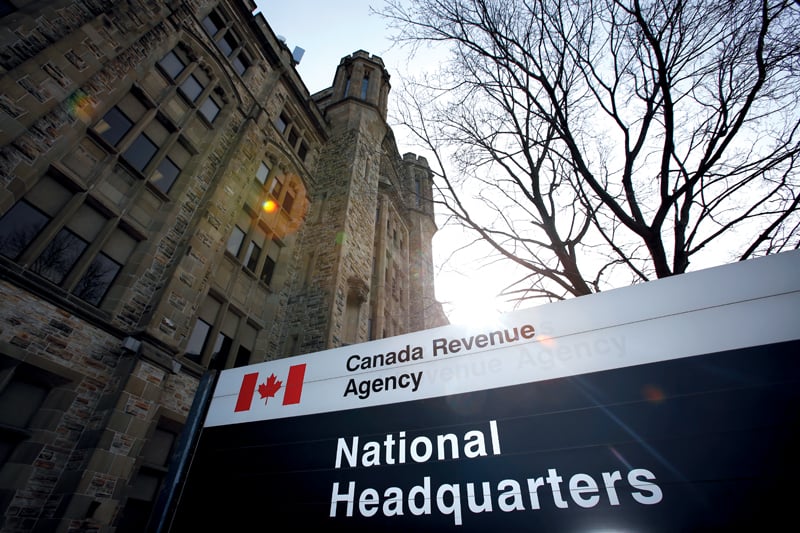Many companies, especially large multinational business with operations around the world, look to shift revenue from high-tax jurisdictions to other nations through bilateral tax treaties or agreements.
Foreign buyers are taxed at a significantly lower rate even on earnings claimed in Canada.
John Brussa, a partner and chair of Burnet, Duckworth & Palmer LLP in Calgary, says while he doesn’t know the exact number of bilateral tax treaties Canada has with low-tax jurisdictions, it is “in the double digits.
“You wouldn’t think of Luxembourg, for example, as a tax haven. But it is, much like Switzerland, Ireland and the Barbados, among others. Not all are traditional centres of commerce, so what they’ve done is they’ve adopted favourable tax legislation and aggressively negotiated treaties with OEDC countries. Some of also them have bank secrecy laws, so they’re ideal. It’s very tempting for some of these countries”
For American buyers, countries such as Bermuda and the Cayman Islands that don’t have a tax treaty with Canada can still be useful in structuring a transaction because they can be holding tanks if the buyer wants to leave some income offshore.
Angelo Nikolakakis, a partner of EY Law LLP in Montreal, says “the vast majority” of cross-border deals he has worked on over the years include a tax-favorable jurisdiction.
“Why would you go to a store and see the product you’re looking for $10, then go to another store, see the same product for $5, and not buy it at the second store?” he asks. “Why is the decision-making process any different than that? It’s not rational to pay more for the same thing.”
It’s also not always done just for tax savings, Nikolakakis adds. A lot of private equity funds use an intermediary country because they have investors in multiple jurisdictions.
“If you have 1,000 investors from 10 different countries, you need a neutral vehicle. Why should I put it in a high tax country and let that country take the taxes? Why shouldn’t the economics flow through a neutral country and be picked up by the personal tax base in the various investors’ countries? What’s wrong with that?”
Around the world, many governments and taxpayer groups are concerned at the loss of otherwise potential tax dollars from large multinational corporations, partnerships and wealthy investors. Canada is losing as much as $25 billion per year potentially to off-shore tax havens, according to a report by the Canada Revenue Agency.
Despite attempts by the Canadian government to keep taxable income within its grasp, the treaties and their provisions have been consistently upheld by the courts.
In September 2018, the Tax Court of Canada held in Alta Energy Luxembourg S.A.R.L. v. Her Majesty the Queen that a Luxembourg resident corporation has the benefits of the Canada-Luxembourg Income Tax Convention without being subject, for that reason alone, to the General Anti-Avoidance Rule (GAAR) under Canada’s Income Tax Act.
The case centred on Alta Energy Partners, LLC, a Delaware corporation, which incorporated a Canadian subsidiary in 2011 to develop a Duvernay shale property in northwestern Alberta. In 2012 it transferred the shares to Alta Energy Luxembourg S.A.R.L. The following year it sold the shares to Chevron Canada Ltd. for approximately C$680 million.
The company claimed the roughly C$380-million capital gain was exempt from tax under the 1999 Canada-Luxembourg Income Tax Convention. The government challenged that, arguing for the general anti-avoidance rule applied to the transaction so it should be denied the exemption.
In ruling against the government, the court noted among other things that Canada specifically chose to depart from the OECD Model Treaty provisions by including a specific exemption in the Canada-Luxembourg treaty, so it was Canada’s intention to give Luxembourg resident companies a more favourable tax treatment to encourage foreign investment. The court said anti-avoidance rules could not be used to rectify an “unintended gap in the Treaty.”
Canada’s federal Department of Finance came close to implementing a domestic anti-treaty-shopping rule several years ago, but backed down following consultations with the business community.
In 2017, however, it did became a signatory to the OECD’s Multilateral Convention to Implement Tax Treaty Related Measures to Prevent Base Erosion and Profit Shifting, which came into effect in the summer of 2018.
Designed to harmonize tax regimes and equalize the playing field by making payments and structures more transparent, the instrument allows the roughly 100 signatory countries to pick the specific bilateral treaties they are willing to amend and which provisions they are open to amending. If the other jurisdiction agrees, the changes are made.
The concept is a tough sell in many tax havens — especially Caribbean island nations whose economies depend heavily on the tax work and corporate presence that comes with it. ”They’re under a lot of pressure not so much to give up their treaties, but to raise their tax rates, for example,” says Nikolakakis. “To stop having special regimes that give tax benefits. They’re very very concerned.
“They justify their tax regimes on sovereignty, although they may give an inch [on the OECD initiative] to prevent losing a mile. What are they supposed to do? Their tax regimes have allowed their people to develop some good skills over the years and climb out of poverty. Realistically, they’re just trying to survive.”
Many of the them have chosen a bare minimum, one or two, potential treaties and amendments, says Nikolakakis. Canada? “Canada has basically chosen the bare minimum plus a couple of others,” he says.
Brussa of BD&P says the Canada Revenue Agency is also clamping on down on tax havens through a variety of made-in-Canada measures.
Ottawa is actively pushing to renegotiate the older bilateral treaties and “aggressively auditing transactions in what I would call these ‘straw countries.’
“The CRA has quite a presence down in Barbados,” he says. “So if a Canadian company says it had a Barbados subsidiary that’s earning a lot of income, the auditors make sure that, one, it’s actually resident in Barbados and, two, that it’s not a paper company. That it’s a real company.”
That’s making it more difficult for anyone buying in Canada to use the another country to reduce taxes through transfer pricing — the price one division pays another for goods or services. Transfer payments have long been a way of shifting taxable income offshore.
Paul Gibney, a partner at Thorsteinssons LLP, a Tax boutique, says transfer pricing “is probably the biggest area of review by the CRA these days on international transactions. We’ve had a number of audits where auditors have gone to the jurisdiction to look at the company’s office and operations there.
“Historically it was much easier to assign functions in those jurisdictions. But now you have to hire people to the ground and be able to show there is real business being carried on.”
Canada’s clampdown is having an impact on deal structuring, Gibney says, while the broader consensus appears to be the OECD’s efforts have so far barely made a dent.
So while US companies coming into or through Canada are more careful about the use of transfer payments, many continue to structure through Canada’s tax treaties and arrangements to get access to lower-tax jurisdictions.
In some cases, that is the United States.
US President Donald Trump introduced the 2018 Tax Cuts & Jobs Act, slashing corporate taxes to 21% from roughly 35%. A US company putting a division in Ontario today would be taxed at 26.5%, Gibney says. And that 5% difference is “absolutely” having an impact in how deals are structured.
“Businesses that otherwise would have come into Canada, we’re now trying to structure into the US because of the 21% corporate tax rate. I’ve had clients — Canadian and American — who want to put a new division in and the question is where?
“In the past, part of the equation used to be that Canadian tax rates are lower, so they’re better off having it in Canada. But I have several clients who are moving parts of their business to the US.”
Find out what is the corporate tax rate for small businesses in Canada by reading this article.
At the end of the day, the use of tax havens reflects a divide that plagues efforts to harmonize tax globally. Corporate entities see tax minimization as good business sense. The public and governments see it as companies using legal loopholes to offload their fair share of taxes.
Brussa calls it “a battle, with high-tax jurisdictions and their revenue authorities on one side and multi-nationals and countries like Switzerland, Luxembourg and Ireland who are trying to bolster their own economies by importing income on the other.
“It’s bit of a lightning rod in the globalization debate. The real question is how patriotic should multi-nationals be in paying their tax?”
Sandra Rubin is a Toronto writer and strategic consultant.





